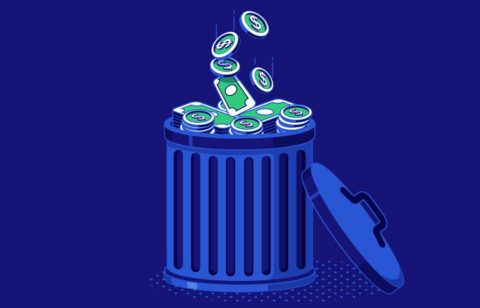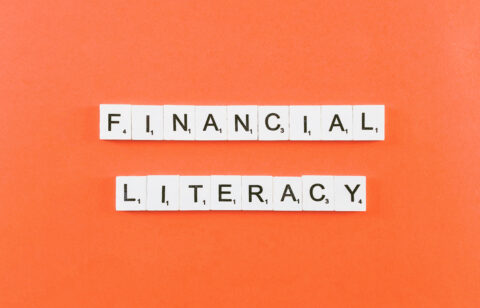If you didn’t learn about personal finance growing up, you are not alone. In fact, a recent Ipsos poll found that one-third of Americans lack financial literacy skills. And the odds are that neither your middle nor high school offered personal finance courses.
Perhaps you’ve stumbled around and learned a bit about personal finances through trial and error. But you may still be in the dark about topics like the time value of money or loan-to-value ratio. You may also feel unprepared for practicing financial planning skills like budgeting, investing, building wealth, and becoming financially independent.
Fortunately, the following books can equip you with the knowledge needed to become a true money management wizard.
1. “Personal Finance For Dummies” – Eric Tyson
Despite its title, this is not a book for dummies—it is for anyone who wants to take control of their finances and live a better life. Its author, Eric Tyson, is a best-selling personal finance author who has written several national bestsellers. In fact, this book has won the Benjamin Franklin Award for Best Business Book of the Year.
2. “The Wall Street Journal – Complete Personal Finance Guidebook” – Jeff D. Opdyke
From one of the most trusted financial sources comes this comprehensive guidebook. It covers just about everything related to personal finances including topics like rethinking your credit cards, evaluating your approach to college savings and credit cards versus debit cards.
One reviewer said, “I have read many books on personal finance in the past, but none have this depth and breadth to it.” According to another reviewer, “I found it fascinating and easy to comprehend.”
3. “Total Money Makeover” – Dave Ramsey
If you are familiar with Dave’s radio show, you know that he offers financial tips like spending wisely, paying with cash instead of credit cards, paying down debt, and building an emergency fund. This book is not full of lightweight promises and feel-good anecdotes but instead offers solid basic advice for every reader.
It includes information about using the snowball strategy for paying off debt, which Dave is credited for having invented. Despite receiving some criticism, his methods have helped many people. If you are struggling with debt, this book is a great starting point.
4. “How to Get Out of Debt, Stay Out of That, And Live Prosperously” – Jerrold Mundis
Mundis’ book is built around the principles of Debtors Anonymous—a 12-step program created to help those who were struggling with compulsive debt. You won’t find purely theoretical information from Wall Street financial experts in this book; instead, you will learn about stories and tips from real people. The book is 35 years old, but its information is timeless and is still applicable to many situations today.
People Also Read
5. “Rich Dad, Poor Dad” – Robert Kiyosaki
Robert Kiyosaki makes the point that someone who dropped out of the eighth grade but spends less than he earns is smarter than a college professor who is unable to make ends meet. Furthermore, the book goes on to say that working for a steady paycheck can get you started as a good money manager, but your best investment of time and money is to buy a business or property.
6. “The Millionaire Fast Lane” – MJ Demarco
MJ Demarco preaches that it’s a fool’s game to work hard, save 10% of your income and retire at 65. His theory states that financial markets are simply too volatile, and you would probably be using a walker by the time you had enough money to retire. He feels that a better policy is to utilize the unpredictability of the financial markets to make money quickly and enjoy it now.
7. “Your Money or Your Life” – Vicki Robins
This book centers on the idea that living frugally can increase—rather than decrease—your quality of life. Robins cites numerous examples of what you shouldn’t do such as working a job that generates less income than what you pay for childcare and making “timesaving” trips to McDonald’s.
8. “The Millionaire Next Door” –Thomas J. Stanley and William D. Danko
These two authors researched U.S. households with a net worth of $1 million or more. They identified most Americans as “Under Accumulators of Wealth” (UAW) – or people who have a low net wealth compared to their income. The book also includes advice like taking skimpy vacations to help you achieve a higher net worth.
9. “The Money Book for the Young, Fabulous & Broke” – Suze Orman
Instead of providing information for people who are about to retire, this book is designed to help younger people navigate the basics of the financial world. Topics include coping with huge student loans and a job market that is nearly as dismal for young people as the Great Depression was for everyone.
10. “Secrets of the Millionaire Mind” – T. Harv Eker
Eker argues that if you are “poor” it is because you most likely think like a “poor person.” Conversely, if you are rich, it is because you think rich. Eker also believes that many lower-class people provide their children with a worldview that prevents them from accumulating wealth, which can then force them to live the same lifestyle when they are older. According to this book, if you start thinking like a tycoon, you can be one too.
11. “Think and Grow Rich” – Napoleon Hill
In the the1930s, Napoleon Hill interviewed several millionaires and philanthropists, including steel tycoon Andrew Carnegie. As a result, this book is a perennial best seller of self-development that encourages the notion that “greed is good” – so long as you are willing to share your wealth.
12. “The Richest Man in Babylon” – George Clason
Built around pseudo-biblical parables about attaining wealth, this book has inspired investors since the early 1920s. Like many of the personal finance books that followed this one, “The Richest Man in Babylon” stresses saving rather than spending. It also maintains that charitable giving is just as important as becoming wealthy as long as you don’t encourage dependency on the people you help.
13. “I Will Teach You to Be Rich” – Ramit Sethi
In this New York Times and Wall Street Journal bestseller, Ramit Sethi explains key strategies for building wealth such as optimizing your bank account, investing, and smart spending habits. While the book’s insights may be particularly useful to readers in their 20s or 30s, these practices can be applied by any beginner wanting to learn financial literacy.
14. “The Intelligent Investor” – Benjamin Graham
Graham teaches readers how to invest in the stock market while minimizing economic risks. Despite being published in 1949, many of the principles mentioned are still relevant today. For example, the book discusses the issue of inflation and how many investors fail to take it into account.









